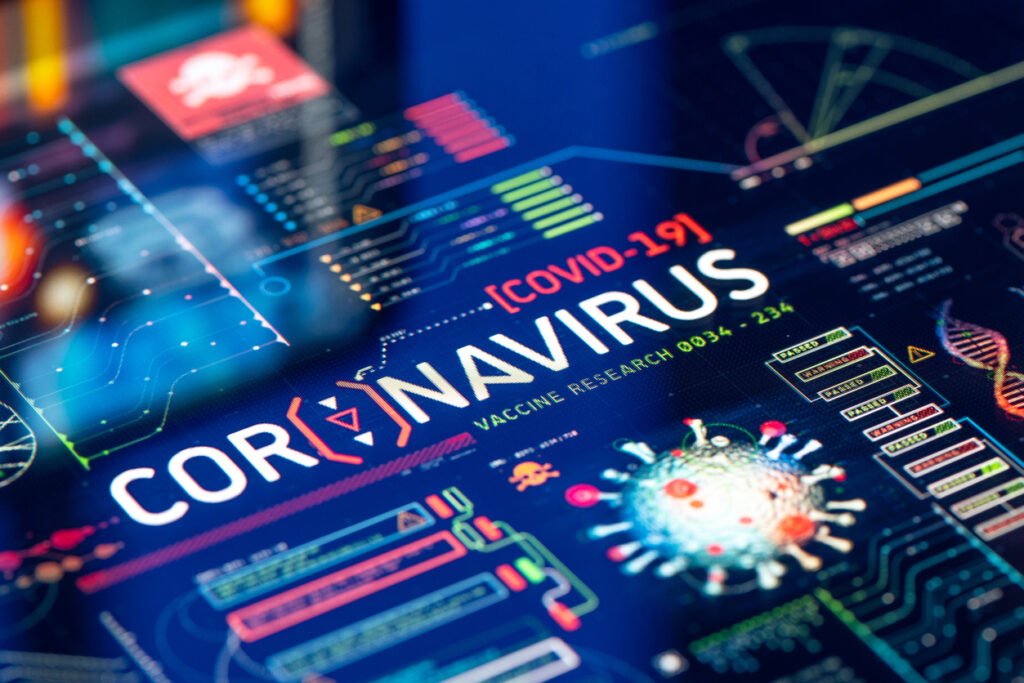Reflecting on the COVID-19 Pandemic at Year Four
As we reflect on the four-year anniversary of COVID-19 pandemic declaration, the imperative for global health solidarity is greater than ever.
Published March 12, 2024
By Syra Madad, D.H.Sc., M.Sc., MCP, CHEP

This month marks a solemn milestone: the four-year anniversary of the COVID-19 pandemic declaration by the World Health Organization. During this period, the virus has caused the deaths of over seven million individuals globally—a figure that is vastly undercounted, with actual losses likely two to three times higher.
This number also includes over one million COVID-19 deaths in the United States alone. A recent analysis of excess mortality in the U.S., which provides an estimation of deaths that likely would not have occurred under normal, non-pandemic conditions, has found that in the first two years of the pandemic many of the excess deaths that were attributed to natural causes were actually uncounted COVID-19 deaths. This points to a significant underestimation of the pandemic’s true death toll, let alone the impact on livelihoods and disability caused by this virus.
Looking back, the global spread of COVID-19, a virus previously unknown to humanity, has been unprecedented, touching every continent and infecting billions. As we enter the fifth year of this virus’s existence into the human population, over 98% of the U.S. population now has some protective immunity against COVID-19 from vaccination, prior infection, or both.
The Vaccine Distribution Narrative
However, the vaccine distribution narrative tells a story of stark inequity: while the U.S. has progressed to its eighth COVID-19 vaccine recommendation for the immunocompromised or elderly and over 81% of the U.S. population having received at least 1 dose of a COVID-19 vaccine, only 32.7% of individuals living in low-income countries have received at least a single dose of a COVID-19 vaccine. This painful disparity underscores the urgent need for global efforts to address vaccine inequity.
Reflecting on my own involvement in the COVID-19 response at various levels—local, state, federal, and international— I want to call out two specific takeaways: One, the pandemic underscored the critical importance of clear, transparent, and effective science communication. Misinformation, disinformation, and mixed messages has undermined public health efforts, fueling skepticism and non-compliance with public health recommendations.
Personally, it highlighted the need to improve communication skills, especially in simplifying complex scientific information for general audiences. To help contribute to bridging this gap, I look forward to leading a study group later this month at the Harvard Kennedy School’s Belfer Center for Science and International Affairs titled Exploring Science Communication with Dr. Syra Madad focused on enhancing science communication skills for the next generation of science communicators.
Second, COVID-19 demonstrated that infectious diseases do not respect borders, making global collaboration imperative in tackling pandemics. Sharing information, resources, and technology across countries and regions is crucial for an effective response. Additionally, the pandemic has highlighted disparities in healthcare access and outcomes, both within and between countries. Efforts to improve health equity—including equitable access to vaccines, treatments, and healthcare resources—are fundamental.
A More Resilient Global Health Network
Strengthening and supporting the infrastructure of public health and health systems in lower-income countries are critical steps towards a more resilient global health security network. That is why it is imperative for countries, including the United States, to agree to the Pandemic Treaty, which aims to strengthen pandemic prevention, preparedness and response for the next inevitable global health emergency we will all face. There are less than three months left to finalize the draft agreement before the 77th World Health Assembly in May 2024.
Lastly, as we enter the fifth year of this pandemic, it is vital to remember that COVID-19 remains a significant public health challenge. Although its ranking as a cause of death has decreased globally, and in the U.S. (going from third leading cause of death in 2020 and 2021 to tenth in 2023), the ongoing impact of the virus calls for continued vigilance and commitment to public health principles.
Stay connected with Dr. Madad:
Instagram
Twitter/X
LinkedIn
Facebook
